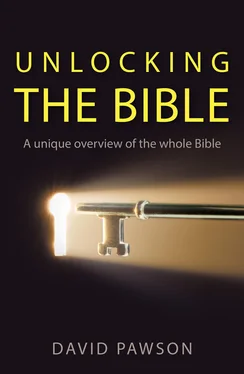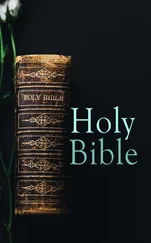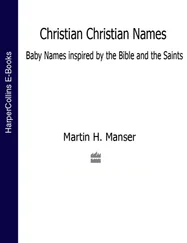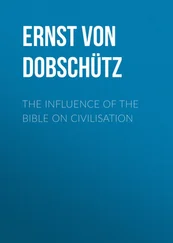The problem that divided them was that God accepted Abel’s sacrifice and rejected Cain’s. Abel had learned from his parents that the only sacrifice worthy of God was a blood sacrifice – the result of a life being taken. God had already covered the sin and shame of his parents by killing animals and providing a covering for Adam and Eve from their skins. A principle was being established: blood was shed so that their shame could be covered (it began there and continues through to Calvary). So when Abel came to worship God he brought an animal sacrifice. Cain simply brought fruit and vegetables.
God was only pleased with Abel’s sacrifice, not with Cain’s offering. Cain was angered by this. In spite of God’s warning that he should master sin, Cain leads his brother away from his home on a false pretext, then murders him, buries him and totally disowns him (‘Am I my brother’s keeper?’ he asks).
A clear pattern emerges here: bad people hate good people, and the ungodly are envious of the godly. This is a division that goes all the way through human history.
So God’s perfect world is now a place where goodness is hated, and the evil people excuse their wickedness. Anyone who presents a challenge to the conscience is hated. We could say that Abel was the first martyr for righteousness’ sake. Jesus himself said that the ‘blood of the righteous has been spilled from Abel, right through to Zechariah’.
The narrative goes on to chart the line of Cain and it includes some interesting elements. Alongside the names of Cain’s descendants are listed their achievements, most notably the development of music and of metallurgy, including the first weapons. Urbanization also came from Cain’s line. It was Cain’s line that began to build cities, concentrating sinners in one place and therefore concentrating sin in one place. It could be said that cities became more sinful than the countryside because of this concentration.
Thus what we might see as ‘human progress’ is tainted. The ‘mark of Cain’, as it were, is on these ‘developments’, and that is the biblical interpretation of civilization: sinful activity is always at its heart. Polygamy also came through Cain’s line. Up to that point one man and one woman were married for life, but Cain’s descendants took many wives, and we know that even Abraham, Jacob and David were polygamists.
There was a third brother, however, Adam and Eve’s third son Seth. With him we see another line beginning, a Godly line. From the line of Seth, men began to ‘call on the name of the LORD’.
These two lines run right through human history and will continue to do so right to the end, when they will be separated for ever. We live in a world in which there is a line of Cain and a line of Seth, and we can choose which line we belong to and which kind of life we wish to live.
2. Noah
The next major event is the Flood and the building of Noah’s ark. The story is well known, both inside and outside the Bible. Many peoples have tales of a universal flood within their folklore. It has been questioned whether it was a real event and whether it literally covered the whole earth. The text does not indicate whether the Flood went right round the globe or just covered the then known world. Certainly the Middle Eastern basin, later called Mesopotamia, the huge plain through which the Tigris and the Euphrates flow, is the scene of all the early stories of Genesis and was definitely an area affected by flood.
The Bible’s focus is not so much on the material side of this story as on the moral side. Why did it happen? The answer is staggering. It happened because God regretted that he had made human beings. ‘His heart was filled with pain’. This is surely one of the saddest verses in the Bible. It communicates God’s feelings so clearly, and these led to his resolve to wipe out the human race.
What had happened to cause such a crisis in God’s emotions? To answer this we need to piece together the Genesis narrative with some parts of the New Testament and some extra-testamental material quoted in Jude and Peter.
We are told that between two and three hundred angels in the area of Mount Hermon sent to look after God’s people fell in love with women, seducing them and impregnating them. The offspring were a horrible hybrid, somewhere between men and angels – beings not in God’s order. These are the ‘Nephilim’ in Genesis 6 – the offspring of the union between the ‘sons of God’ and the ‘daughters of men’. The word is sometimes translated as ‘giants’ in English versions. We do not know exactly what is meant – it is just a new term for a new sort of creature. This horrible combination was also the beginning of occultism, because those angels taught the women witchcraft. There are no traces of occult practices before this event.
The immediate effect of this perverted sex was that violence filled the whole earth; the one leads to the other when people are treated as objects and not as persons. Genesis 6 tells us that God saw that ‘every imagination of man’s heart was only evil continually’. He felt that enough was enough.
But God did not judge immediately, he was very patient and gave them full warning. He called Enoch to be a prophet to tell the human race that God was coming to judge and deal with all ungodliness. At the age of 65 Enoch had a son, and God gave him the name for the boy, Methuselah, which means ‘When he dies it will happen’. So both Methuselah and Enoch knew that when Enoch’s son died God would judge the world.
We know that God was patient, because Methuselah lived longer than anybody else who has ever lived – 969 years. When Methuselah died it began to rain heavily. Methuselah’s grandson was called Noah. He and his three sons had spent 12 months building a huge covered raft according to God’s specifications. Just one family, a preacher and his three boys, three daughters-in-law and his wife, were saved.
After the Flood, God promised never to repeat such a thing as long as the earth remained. He made a covenant, a sacred promise with the whole human race: not only would he never destroy the human race again, but he would support them by providing enough food. He would ensure that summer, winter, springtime and harvest came regularly. At a time when famine is common in various parts of the world, this promise may seem to have been ignored. But there is far more corn in the world than we need – it is just not evenly distributed. Everyone could be fed if the political will existed.
God put a rainbow in the sky to signify this covenant. The two things we need for life on earth are sunlight and water, and when they come together the rainbow is visible.
When God made this promise he also demanded something of mankind. He commanded that we must treat human life as sacred and therefore punish murder with execution. When a nation abolishes capital punishment, it says something about its view of human life.
3. Babel
The next incident that affected God deeply was the building of the Tower of Babel. People wanted to build a tower that reached into God’s sphere of heaven, effectively to ‘challenge heaven’. The text says that they wanted to build a name for themselves. We know roughly what the tower would have looked like: such a tower was called a ziggurat, a great brick structure with staircases extending heavenwards. On the top of such towers there were usually astrological signs. But it was not so much for worshipping stars that Nimrod (king of Babylon, or Babel) built that tower – it was more to express his own power and grandeur.
The Tower of Babel offended God very profoundly. He said that if he let them continue there was no telling where it would end. So God gave the gift of tongues for the first time, to confuse the people. They could no longer understand each other. From then on humanity split, scattering and speaking different languages.
Читать дальше











